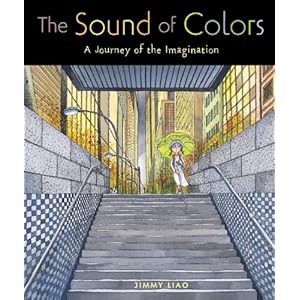
It is almost a new year, and I've been thinking. There has been a lot of loss since we left Wyoming. There have been people we knew who've died young and tragically. It has weighed heavy on my mind and heart.
Welcome to my world. Where sometimes things are planned, sometimes things fall apart, and sometimes we let things just spin with the breeze.


I miss my mother most in the fall.
She loved autumn: the colors, the crispness in the air, and the sense of change. By autumn, freckles from summer peppered her face. They always made her look young and vibrant. She was married in October, before the snow fell. Her bridesmaids wore avocado green and shades of orange.
I, too, love fall, but my heart also aches for her this time of year. This was the winding down time; the time of year when our hope of a prolonged life for her was gone and we settled our minds instead on just being together. All the things that needed doing were set aside. There were good days then, before the vomiting and morphine and vials of medications.
We knew winter was coming with its emptiness, harshness, and stark absence. We knew she wouldn’t be there with us, to weather its storms or to smile when the hummingbirds came back the next spring.
Every year, it seems like I count down the days again. I mourn the loss of the leaves, the browning of the hillsides, and the death of my mother. She loved autumn enough to stay for it’s full duration. The first snow fell just hours after she died.
It seems fitting now, that my favorite time of year is filled with a sort of longing: for warm days and cool nights, for long slow walks, for the smell of maple and cinnamon, and to be loved the way only my mother loved me. I long for an elusive kind of peace. The kind that comes with feeling good about change; with hanging on to some things and letting go of others. It’s the time of year when I’m struck by how much I don’t have the answers. How much I miss being sheltered like a child.
All of my worries churn like the leaves rustling on the ground.
Then my children come, run through them, pick them up and toss them heavenward.
And I remember: I used to do that too.




Grandpa could read the skies: a moon dog at dusk that meant rain was coming, or high clouds that meant he could cut hay. I watched him once touch newly plowed dirt to his tongue and then spit it out. When I asked him why he’d done that he told me that he could taste things in the dirt: minerals and moisture and richness for planting. I nodded and tasted the dirt myself when he wasn’t looking.
He was right.
I tasted iron, like when your mouth bleeds. I tasted what it smells like before it rains. The dirt tasted like earth and rain and sunshine and life. It tasted rich and gritty and ready. Grandpa nodded at me. He’d caught me after all. I spit the dirt out, smiled, and turned with him to the tractor. We both climbed aboard and circled the field again once, twice, turning the dry dirt over. Behind the plow the soil went from dry, crusty taupe to pillows of dark chocolate brown--ready for planting.
It was finally spring.

This is a picture book. Except that it’s not really a picture book—not in the sense that we’d typically define a picture book. At 80 pages, it’s a bit lengthy for a picture book and is leveled at a 9-12 age level.
However, this book is worth a read, for adults as well as children. The words are beautiful and poetic and the only things equal to the words are the pictures. They’re engaging and imaginative and gorgeous.
“The Sound of Colors” is the story of a young girl whose eyesight slipped away about a year ago. She travels from subway stop to subway stop imagining the world around her:
“I listen for the sound of the colors I can’t see,” she says as she moves through her mind’s eye imagining and searching for the place where all the colors are: “Home is the place where everything I’ve lost is waiting patiently for me to find my way back.”
I’ve heard that this book is even more poignant in it’s native Chinese, but the translation is touching, emotional even. I’ve also read that in Chinese it transcends the story of a girl in a subway station and is an obvious metaphor for life. I see, even in the translated version, that there is more at play here than a girl with a white walking cane. I mostly love that this book isn’t really about blindness, it is about color and light and hope and love.
Trust me, it’s worth read.

